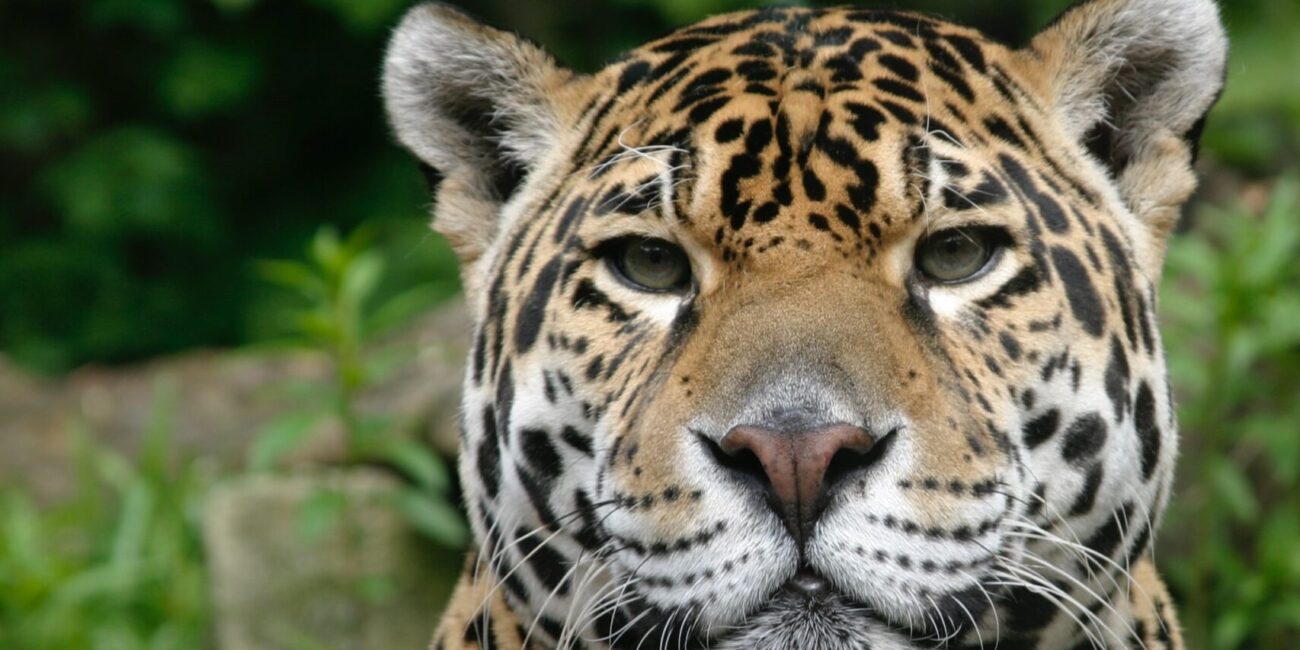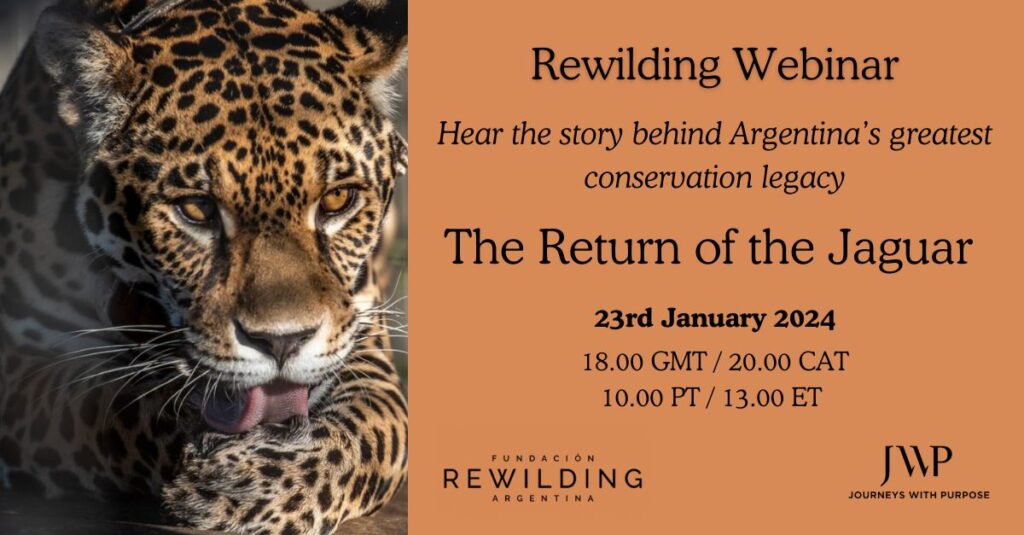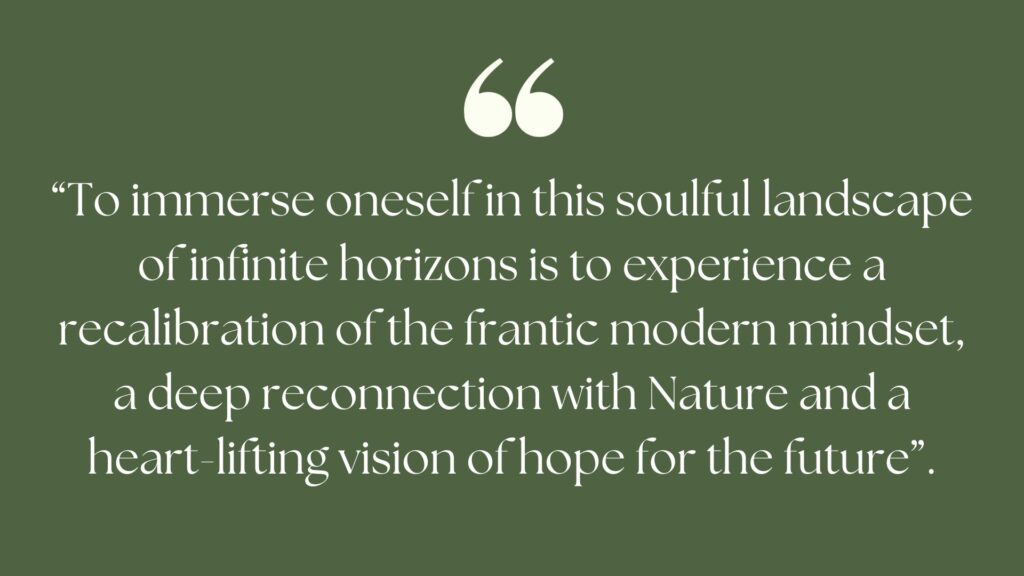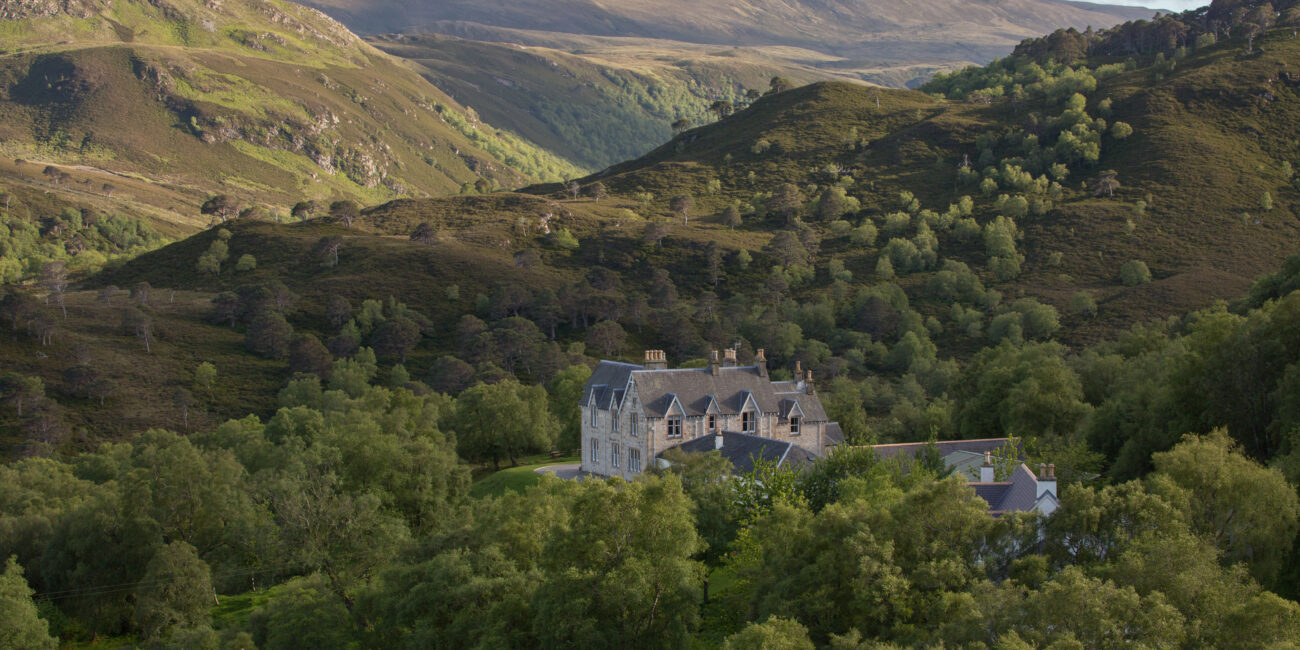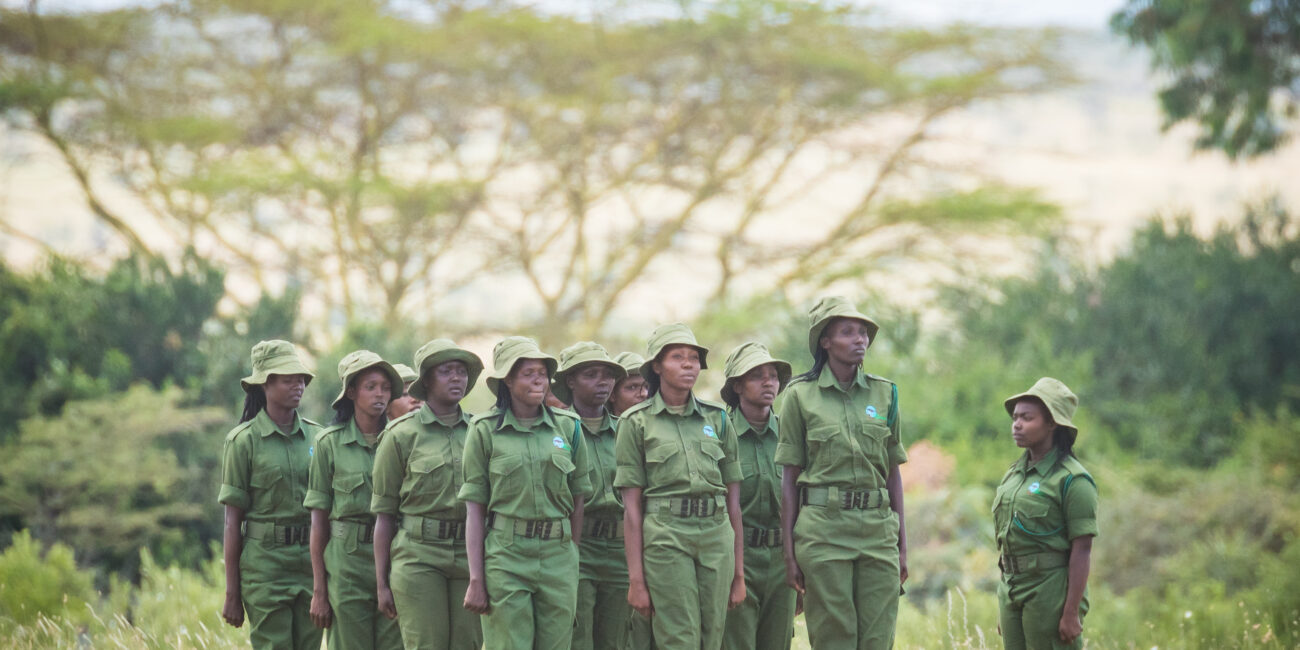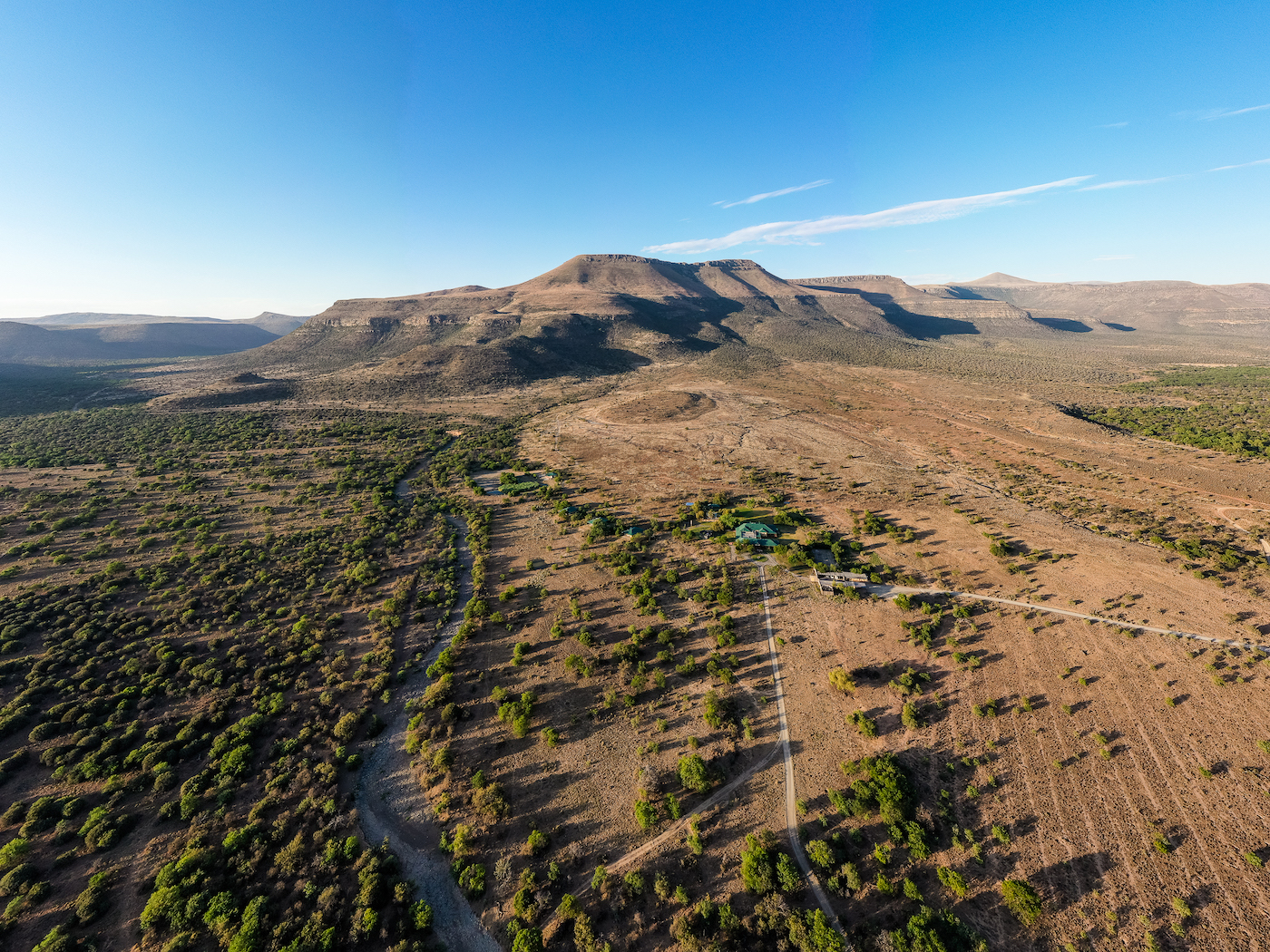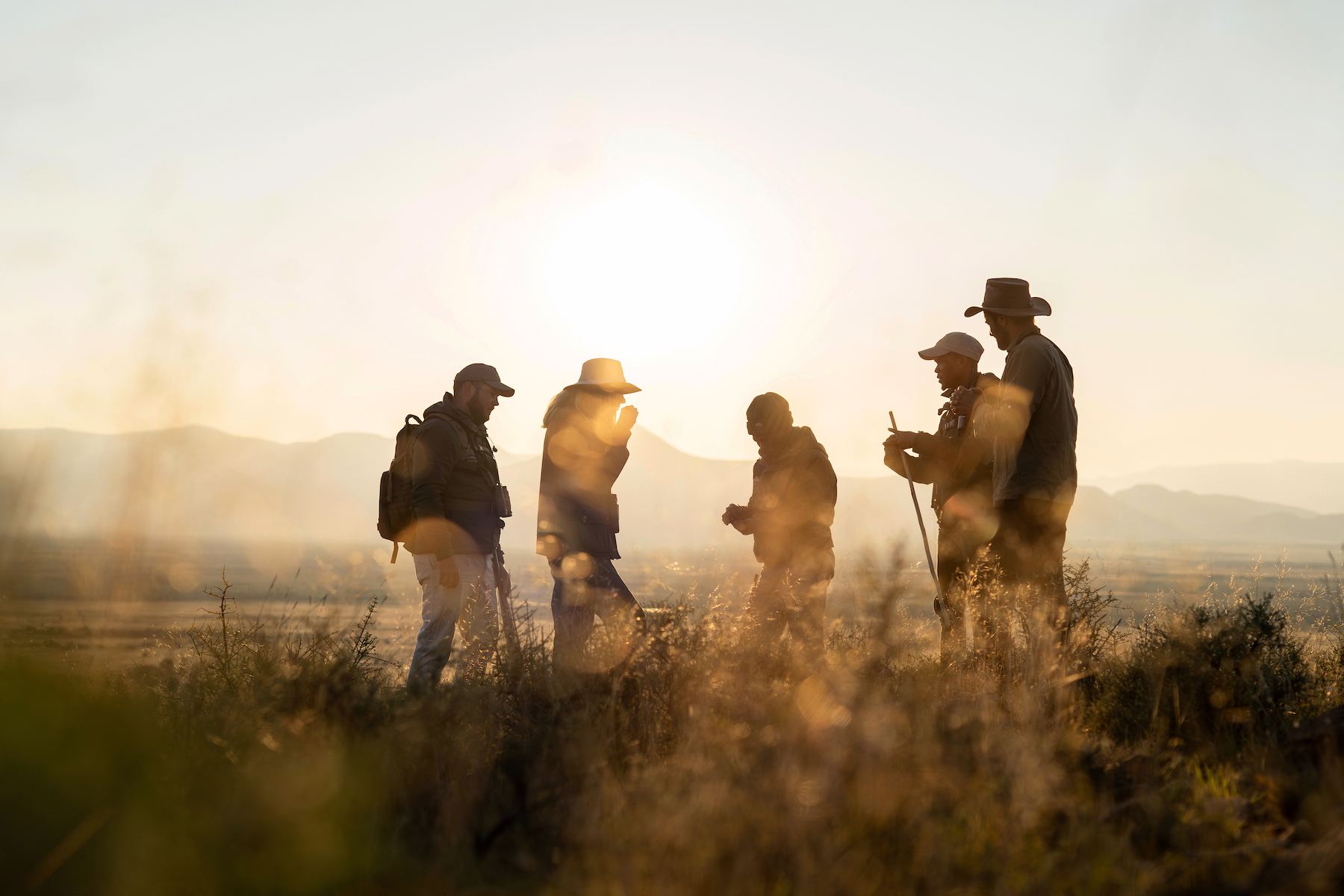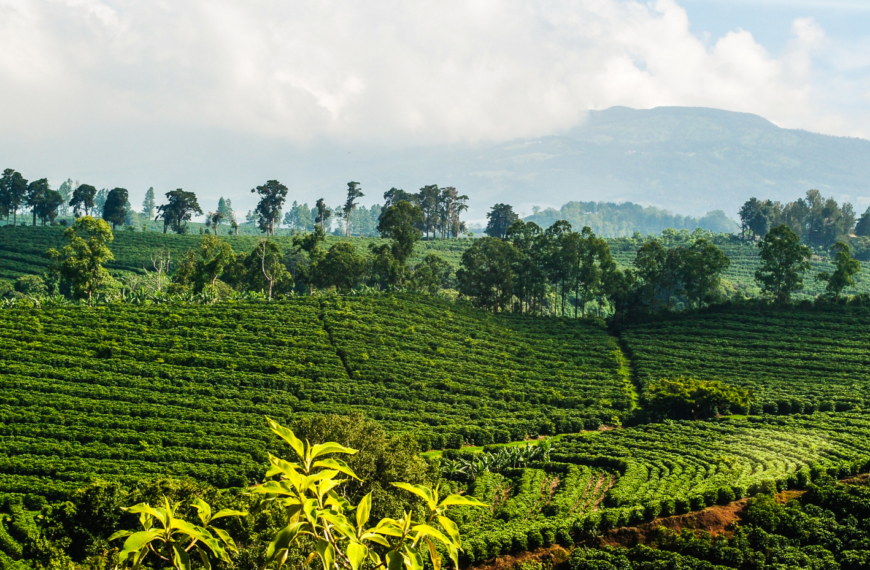Definition of Rewilding
The process of protecting an environment and returning it to its natural state. Rewilding runs directly counter to human attempts to control and cultivate nature.
To engage with rewilding, the factors to consider are the benefits of rewilding and the areas on which to focus.
Rewilding facilitates trophic cascades
A trophic cascade unfolds as top-tier predators impact not only their prey’s populations but also unrelated species throughout the food chain.
These effects ripple through the food chain. Therefore, leading to significant transformations in the ecosystem, landscape, and even the chemical composition of the soil and atmosphere.
In Argentina’s Iberá National Park, the apex predator, the jaguar, has been successfully reintroduced after a 70-year absence.
This world-first is of huge ecological significance as the health of the Corrientes ecosystem depends on the presence of its largest natural predator.
Overpopulation of capybaras, deer, and caimans, is avoided as the jaguars habitually cull the sickest and weakest of their species. Consequently, this boosts the health of the ecosystem as potential famines and catastrophic illnesses are prevented.
In addition, jaguars control the populations of smaller predators like foxes and cougars, which helps protect birds, small wildlife and domestic animals.
To engage with this pioneering rewilding effort, join Executive Director of Rewilding Argentina, Sofía Heinonen, on our journey to Argentina this September.
Learn first-hand from the team at Fundación Rewilding Argentina about the effects of trophic cascades, as well as the pioneering story of rewilding 7.6 million acres of national park.
View the journey page here.
Ahead of the journey, we are hosting a Fireside Chat with Director of Rewilding Britain, Alastair Driver, and Science Director of Rewilding Argentina, Sebatian di Martino.
Engage with rewilding through this insightful conversation between two conservation experts. There is also the opportunity to submit your own questions to learn more about the rewilding of Argentina’s largest wetland.
Rewilding Keystone Species
An apex predator is one that sits at the top of its food chain. However, keystone species are those that have an effect on their environment disproportionate to their population. Many apex predators are keystone species, but not all.
At the end of 2019, Conservation Carpathia (FCC), successfully reintroduced bison into the Făgăraș Mountains of Romania.
The bison serves as a keystone species, shaping a mosaic of habitats. Their debarking creates open spaces within forests, promoting the thriving of grasslands and associated species like butterflies, insects and reptiles. Additionally, their trampling and wallowing activities create niche habitats for pioneer plants, insects and lizards, while plants caught in their fur aids in seed dispersal.
Bison first disappeared from the Romanian Carpathians 200 years ago due to over-hunting. However, looking forward from their latest field report, their numbers are once again growing.
FCC is currently preparing intensively for new arrivals of bison from Poland, Hungary, Switzerland and Germany. The selection of these individuals and their diversity is extremely important so as to ensure genetic diversity and increase this species’ chance of surviving in the wild.
Engage with rewilding during our journey to the Carpathian Mountains, and visit the Europe’s Yellowstone.
The journey is an immersion into the great forest wilderness, staying at outposts deep in the Făgăraș Mountains and experiencing close encounters with the region’s extraordinary flora and fauna during ranger-led hikes.
View the journey page here.
Engaging with Rewilding Prevents Natural Disasters
Naturally functioning ecosystems offer more than just clean air, water, and carbon sequestration; they also act as crucial safeguards.
Importantly, rewilding these ecosystems prevents soil erosion, provides natural firebreaks, and plays a significant role in flood prevention.
For example, the tree canopy in forests delays rainwater reaching the ground. Meanwhile, tree roots channel rainwater deeper underground, preventing overland flow into watercourses.
Tree-covered soil absorbs rainwater 67 times faster than grass-covered soil, mitigating the risk of sediment buildup and downstream flooding. Additionally, trees’ anchoring roots prevent soil erosion, protecting against dangerous landslides during heavy rain and floods.
In the biodiversity hotspot of South Africa’s Great Karoo, The Tompkinses have dared to rewild an area that had once been a thriving, biodiverse ecosystem of grasslands.
On their journey, they are restoring the land to its former glory and magic and have so far regenerated 67,000 acres of wilderness. They have engaged in an ambitious programme of animal reintroduction, which has included the return of the first wild cheetah to the region in 125 years, the first elephants in over a century and, most recently, the first lions in 180 years.
Samara Reserve has also begun an initiative to actively regenerate overgrazed land through Spekboom planting.
So far they have successfully planted 2,105 trees – and counting!
Research indicates that pristine thicket areas store more carbon compared to transformed or overgrazed land. Specific plant species, which are particularly effective at carbon absorption under semi-arid conditions, contribute to this phenomenon.
One such plant, Spekboom (Portulacaria afra), mainly found in the Eastern Cape, plays a key role in the reserve’s project. However, the Samara team are also introducing additional plant species to preserve biodiversity heterogeneity in the area.
Engage with rewilding and plant your own Spekboom on a journey to South Africa.
Samara’s guests not only play a vital role in safeguarding the extraordinary landscape, but will leave truly empowered by the healing energy of nature.
View the journey page here.
Combating Climate Change
Forests act as natural carbon sinks and consequently play a hugely important role in sequestering CO2 from the atmosphere. The carbon is removed through photosynthesis and absorbed into the wood, leaves and soil, thus remaining in the forest ecosystem.
Similarly, healthy peatlands sequester billions of tons of carbon in layers of decaying, moist vegetation. Meanwhile, drained peatlands in the United Kingdom alone emit approximately 10 million tonnes of carbon a year.
In 2012 Alladale Wilderness Reserve in Scotland created a pioneering scheme. They partnered with financial institution ICAP to restore 550 acres of damaged peatland. This was achieved by installing over 4,000 micro dams to help block 20 kilometres of hill drains.
The initiative has helped regulate run-off, prevent erosion and improve water quality. Consequently, sphagnum moss is now returning, helping drive peat formation, and creating a greater opportunity for carbon sequestration.
Immerse yourself in the beauty of the Scottish highlands.
Spend a week tracking golden eagles and keeping your eyes peeled for red squirrels & mountain hares. At the end of the day, indulge in whiskey tasting, and enjoy behind-the-scenes insights during Fireside Chats with conservation experts in Scotland’s re-wilded and remote paradise.
View our bespoke journeys here.
Engaging Local Communities through Rewilding Tourism
Rewilding introduces a fresh array of possibilities in areas where traditional sectors like farming struggle to sustain communities. This approach enhances the value of wilderness, providing alternative avenues for community livelihoods.
Engage with rewilding by joining an immersive impact experience in partnership with Daughters for Earth and Soul Safaris.
This journey offers first-hand engagement with the societal and environmental issues facing women across Kenya. Join a rare opportunity to unite and collaborate among female change makers, from the warriors at the frontline to the thought leaders catalysing action.
View the journey page here.
Video Credit: Joseph Baraza
